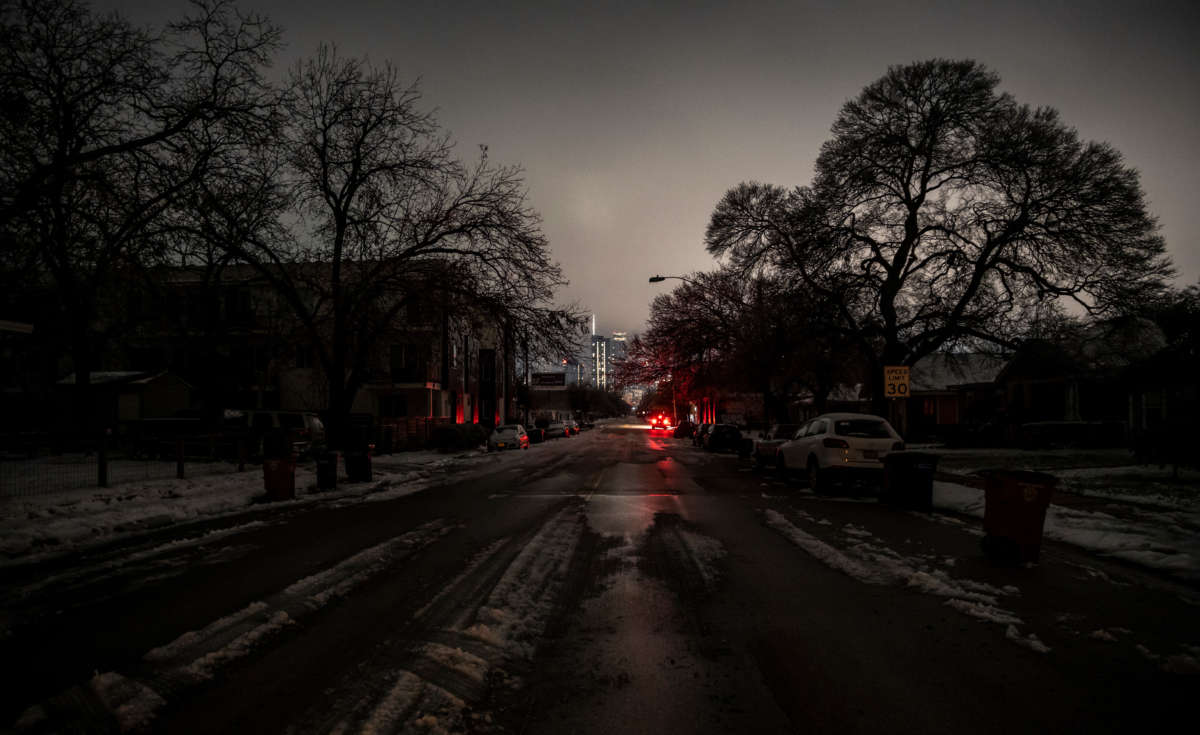Republican Texas lawmakers often tout their state leadership’s contempt and recalcitrance toward the federal government as a point of pride. But a new analysis by the Wall Street Journal (WSJ) has found that the deregulation and monopolization of the Texas energy market cost Texas residents $28 billion more than they would have paid under a traditional utility.
When Texas changed from fully regulated power generation to the largely deregulated system that’s in place today, it began requiring almost 60 percent of residents to buy from retail utilities rather than a public local utility, says WSJ. Retail providers buy energy and then sell it at a fixed rate and essentially acting as a middleman.
Texas isn’t the only state that allows its residents to choose between energy providers, but the model of energy system that led to last week’s power crisis is built upon a shaky framework. Ironically, the deregulatory effort was supposed to make power cheaper for consumers while avoiding federal oversight.
When a Republican state senator who helped lead the charge for deregulation of Texas’s grid in the 1990s alongside lobbyists and businesses like Enron unveiled the deregulation bill in 1999, WSJ noted that he said: “If all consumers don’t benefit from this, we will have wasted our time and failed our constituency.”
“Competition in the electric industry will benefit Texans by reducing monthly rates,” said then-Gov. George W. Bush, per WSJ.
Deregulation, according to these lawmakers’ stated intentions, didn’t work as planned. From 2004 to 2019, WSJ found, while the average rate paid by Texas residents getting their electricity from traditional utilities was 8 percent lower than the average across the U.S., the average rate among retail providers was 13 percent higher than the nationwide rate.
As Bush noted, deregulation was also supposed to allow for more competition, but various mergers have left the state with only two main retail electricity providers.
A 2014 report by the Texas Coalition for Affordable Power (TCAP) had similar findings to WSJ. At the time, the organization found that residents in deregulated areas paid $22 billion more than people in regulated areas of Texas. A follow-up report in 2019 by TCAP found that the gap had since narrowed, but that the system “ha[s] a long way to go,” said TCAP’s executive director.
WSJ’s findings are in light of some conservatives doubling down on defending the deregulated energy system in Texas after the crisis began. Last week, former Texas Gov. Rick Perry said that Texans would rather face the energy crisis that ballooned into what some called a Hurricane Katrina-scale disaster than face regulation from the federal government.
Gov. Greg Abbott, meanwhile, went on Fox to blame the energy crisis on renewable energy, even though the crisis was largely due to natural gas generation failures, and attacked the Green New Deal. However, in the wake of the disaster, climate experts have pointed out that the Green New Deal could actually be instrumental in helping to prevent future disasters like this one.
The winter storm that knocked out the grid in Texas has been attributed to the climate crisis, since climate change causes unusual and often disastrous weather conditions. Though climate scientists have warned of such changes for many years, many energy regulators continue to largely ignore the effects of the climate crisis — including Texas’s grid operator. In an interview with Texas Monthly, the president of the state’s grid operator said “We don’t have any climate specialists on staff.”
It remains to be seen how much consumers will end up paying out of pocket for the past week of energy price spikes in the state, but experts are saying that they will likely be paying more. Some residents who chose to get their energy from wholesale providers were hit with bills of up to $16,000 last week for just a few days’ worth of energy use; others may see a rise in their rates eventually.
We have 9 days to raise $50,000 — we’re counting on your support!
For those who care about justice, liberation and even the very survival of our species, we must remember our power to take action.
We won’t pretend it’s the only thing you can or should do, but one small step is to pitch in to support Truthout — as one of the last remaining truly independent, nonprofit, reader-funded news platforms, your gift will help keep the facts flowing freely.
